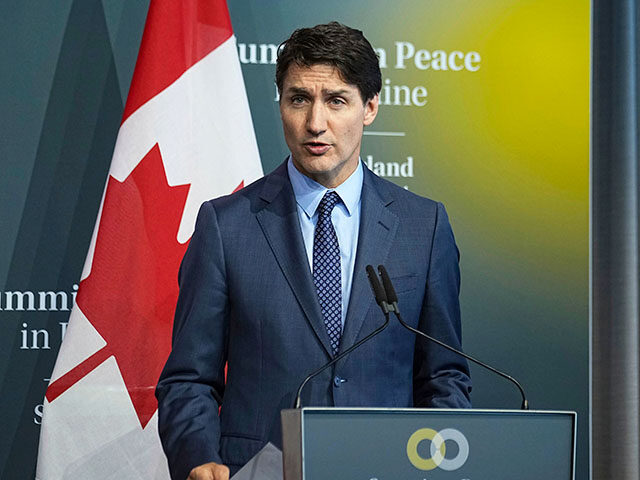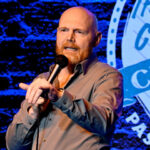Radical leftist Prime Minister of Canada Justin Trudeau confirmed on Wednesday that he would not be running for a seat in Parliament during the election cycle, effectively ending his career in public office in the near term.
Trudeau announced on January 6 that he would resign as prime minister of the country in the coming months, freezing Parliament through a procedural process known as “prorogation,” which does not take seats away from sitting members but prevents Parliament from convening and lawmaking. Trudeau received approval to prorogue Parliament until late March to allow his Liberal Party to find a replacement for him.
Canada is slated to hold general elections by October of this year, which should result in the appointment of a new prime minister. Due to Trudeau’s poor leadership on a host of issues – among them health care, housing, immigration, and more recently his handling of American President-elect Donald Trump’s threat to impose tariffs – the Liberal Party is facing mounting public disapproval.
A poll published shortly after Trudeau’s resignation announcement by the firm Ipsos found more than 80 percent of Canadians supported Trudeau ending his prime ministership and only 20 percent of respondents supporting the Liberal Party in the upcoming election, compared to 46 percent supporting the main opposition party, the Conservatives. As Trudeau personally is at the heart of much of the opposition to his party, Conservative leader Pierre Poilievre has made Trudeau a cornerstone of his campaign, insisting that, no matter who assumes the leadership of the Liberals, his rival in the election will be identical to Trudeau policy-wise.
In a sign that the Liberal Party is hanging its hopes on the electorate forgetting its distaste for Trudeau, the prime minister confirmed on Wednesday he would not stick around in Parliament as a lawmaker after vacating the top job, leaving his seat in Papineau, Quebec, open.
Trudeau told journalists on Wednesday at a meeting of Canada’s premiers, the equivalent of American governors, that he did not know what he would do after leaving Parliament or whether he would continue to work in politics or not.
“In terms of my own decisions, I will not be running in the upcoming election,” Trudeau asserted. “As to what I might be doing later, I honestly haven’t had much time to think about that at all, I am entirely focused on doing the job that Canadians elected me to do in an extraordinarily pivotal time right now.”
Trudeau claimed that he was too busy preparing for the inauguration of President-elect Trump, expected to take place on Monday, to plan his future.
“The U.S. inauguration and the weeks that follow are something that is of deep, deep importance to Canadians and we are entirely focused on that as a team,” Trudeau concluded.
Trudeau entered the Canadian Parliament in 2008 and rapidly rose the ranks of his party, becoming Liberal leader in 2013. He became prime minister after the Liberals won a majority in Parliament in 2015 and has served for nearly a decade since. His term in Parliament is expected to conclude when the next election cycle takes place.
While October is the deadline for the new election, a firm date for voting does not yet exist. Conservatives have been demanding a new election since late 2024, pointing to polling indicating that Canadians wanted Trudeau out of office as soon as possible. As Trudeau’s prime ministership relied on a coalition with the far-left New Democratic Party (NDP), however, the NDP would also have had to agree to dissolve Parliament for a snap election, which it refused to do.
The leader of the NDP, Jagmeet Singh, had said he would move for a no-confidence vote to oust Trudeau on January 27 – a promise made obsolete by Trudeau resigning and proroguing Parliament. Singh expressed support for prorogation, which prompted some mockery as the timing secured Singh’s parliamentary pension. Both the NDP and the Conservatives expect the election to take place sometime in the spring after the Liberal Party chooses a leader, however.
Trudeau blamed his resignation in his initial address on Liberal infighting, which he described as a distraction from implementing policy. Shortly before he announced he would resign, Deputy Prime Minister Chrystia Freeland – one of Trudeau’s longtime closest associates – resigned herself, publishing an acerbic letter condemning Trudeau’s friendly response to Trump’s tariff threats as insufficient to protect Canadians.
Freeland is now considered a frontrunner to replace Trudeau, though she has not yet officially announced her candidacy to lead the Liberals. Her main rival is expected to be former Bank of Canada chief Mark Carney, who is expected to formally announce his candidacy on Thursday, according to the Canadian Press. Candidates have until January 23 to run for the Liberal leadership and must pay $350,000 for the privilege. The election will be held on March 9.
Poilievre has asserted in remarks to voters that the leader of the party is irrelevant, as all agree on implementing radical left-wing policies.
“Every Liberal MP in power today, and every potential Liberal leadership contender fighting for the top job helped Justin Trudeau break the country over the last 9 years,” Poilievre said in his response to Trudeau’s resignation announcement.
“In the next election, I will be running against Justin Trudeau – whether his name is Justin Trudeau or his name is Chrystia Freeland or ‘carbon tax’ Carney or ‘carbon tax’ [Christy] Clark, they will all be Justin Trudeau,” he repeated later that week.
Follow Frances Martel on Facebook and Twitter.

